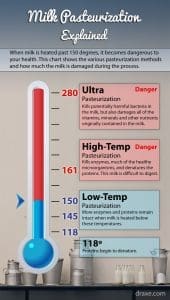
When it comes to dairy there’s so much controversy surrounding the subject. Is it unnatural to drink cows milk? Is it really good for us? How do i know if i’m intolerant or sensitive to dairy?
Today we’re going to go over the fun facts based on science. It is seriously fascinating! I adore this topic!
I’m not going to tell you my opinion, or what I do because what works for me may not work for you..My mission is to show you how you can live a healthy life YOUR WAY. Because you are unique..
Instead, I’m going to show you exactly how you can find out if you have an intolerance or a sensitivity:
LET’S BEGIN WITH THE SCIENCE
What Is dairy?
It’s a combination of sugars, proteins and fats, growth hormones, vitamins and minerals.
In order for us to break down dairy (much like any food) we use proteins in our body called enzymes .
One of the most talked about enzymes in dairy is lactase. This is a protein that breaks down lactose. Without it, you’ll experience pain, bloating, inflammation, diarrhea, gas and nausea associated with lactose intolerance.
Approximately 65% of the human population has a reduced ability to digest lactose.
To show you just how unique you are, your ability to digest lactose is really dependent on where you come from. Countries in Nothern Europe (such as Iceland, Ireland, United Kingdom, Faroe Islands, Norway, Sweden, Finland, Denmark, Estonia, Latvia and Lithuania) are less susceptible to lactose intolerance. Only 5 percent of the population experience issues digesting lactose. While on the other hand 90 percent of of East Asian communities experience intolerance.
It greatly depends on where you’re from!
IS IT UNNATURAL TO DRINK COWS MILK AND DAIRY?
After the age of two we stop producing high amounts of lactase. The obvious theory would be that we’re no longer babies so we don’t need milk and our production of lactase declines as our need for its nutrition declines too. In other words, it would be considered unnatural to drink it after the age of two.
My question is, if that were the case, wouldn’t we all have the same lactose intolerance rates around the world?
The other objection is that we as humans are the only creatures on earth that drink another mammals milk. Fair enough that fact is true, however, we are also the only mammals that shed tears, or laugh out loud, not to mention we have highly developed cognitive abilities that have us wondering if we should eat dairy while other animals just eat.
INSTEAD OF FOCUSING ON THEORIES, HERE IS WHAT WE DO KNOW BASED ON SCIENCE:
The pasteurization process that dairy undergoes has some serious health consequences:

The pasteurization process (exposing dairy products to very high heats in order to kill off bacterias) that is applied to conventional dairy de-natures or destroys the naturally occuring lactase found in dairy products.In fact, it denatures all proteins and it destroys the nutrients found in milk.
Non pasteurized dairy, raw dairy and dairy in it’s low heat form has lactase in it which means even if you didn’t produce lactase, your glass of milk or your yogurt would already have the lactase you needed in order to digest it and you may not feel the signs of intolerance.
Pasteurization (or milk products being exposed to high heat) also produces compounds called Advanced Glycation End Products (A.G.E’s). Just like the acronym implies. These compounds A.G.E you. They increase oxidative stress in our body, they are linked to an increased risk of alzheimers, inflammation, and chronic disease. Not to mention they reduce skin elasticity and collagen production making us look older faster .
Another really concerning issue with conventional dairy is the quantity of growth hormones, stress hormones and in some countries, antibiotics found in conventional dairy products. While The United States and Canada have approved the use of certain growth hormones. Currently, the European Union has banned them.
WHAT TO DO IF YOU WANT TO DRINK DAIRY:
![]()
If you don’t suspect a food intolerance or sensitivity and you want to eat dairy the best philosophy is eat like you did in the “Good Old Days” . The days before huge conglomerates and corporations drastically changed the structure and health values of the food we eat.
Choose Raw cheese: Raw cheese avoids the high heats from the pasteurization process. It also avoids heat that denatures proteins and leaves it nutrient void.
Choose fermented milk products: Dairy products that have added cultures and that are exposed to specific temperatures create fermented dairy products. These products which include yogurt, cheese, kefir, sour cream and creme fresh (to name a few) are easier to digest. The bacteria added to these products feed on the lactose making it less harmful. Certain fermented milks also replenish a healthy balance of gut bacteria that help digest food more efficiently.
Avoid highly processed dairy: If your cheese is bright yellow and comes in a tube, it’s probably not good for you. Besides possible sensitivities to dairy, there are usually a number of dyes and food additives not related to dairy that could be creating sensitivities.
WHAT ABOUT OTHER DAIRY INTOLERANCES AND SENSITIVITIES NOT RELATED TO LACTOSE?
You can have an intolerance to other products found in dairy not related to lactose. An intolerance simply means you’re lacking the enzyme that breaks down food. There may be another enzyme besides lactose that you’re missing. You would then be intolerant to that specific product found in dairy.
You may also experience a sensitivity to dairy. This means you’re not actually missing an enzyme but you feel symptoms or conditions that are unpleasant and associated with dairy, such as acne, headaches, and acid reflux.
There are also other diseases that make it difficult to digest dairy:
IBS: If you’ve been diagnosed with Irritable Bowel disease (IBS) you may have a sensitivity to dairy or an increased risk of lactose intolerance, as the sugars from dairy ferment in your intestine and may cause gas, bloating and other uncomfortable symptoms.
Celiac disease: When you have celiac disease, the villi in your intestines are damaged. These villa contain enzymes that break down dairy. If you don’t have the enzymes, and the enzymes aren’t already present in dairy. You may have a sensitivity or an intolerance to dairy.
![]()
HERE’S THE STEP BY-STEP ON HOW TO TEST FOR DAIRY SENSITIVITIES:
So how do you know if you have a sensitivity? Maybe you’ve been to the doctor and all tests have come back negative, but there’s still this sneaky suspicion that something’s off when you eat dairy. Or maybe you just like getting to know yourself better and you want find out how your body deals with dairy.
The person that know you best is YOURSELF. You are unique and so is your ability to process dairy.
I wanted to make your life really simple. I’ve created the simple to follow step-by-step guide that walks you through exactly what you can do to test if you have a dairy sensitivity.
If you follow the steps and feel pain, bloating, inflammation, diarrhea, gas and nausea associated with lactose intolerance, gas, headaches or acid reflux you may have a sensitivity and it may be beneficial to avoid that particular food item.
![]()
Good luck!
This advice does not replace medical advice. If you suspect an allergy, intolerance or food sensitivity speak with your local health care practitioner.